[Enjoy this guest post by Matt Crespi! – Ed.]
Imagine this: you’re a young Bruce Wayne. You want to save your crime-ridden city from violence and decay, to honor your parents’ memory, and to help millions of current and future residents of the once great Gotham City. You have two courses of action before you. You could:
- A. Spend a decade or so training to be the world’s most badass ninja, then move back home to clean up the streets by beating up criminals one at a time with your bare hands. OR
- B. Spend a few years at a top policy school networking, learning, and earning an advanced degree, then move back home to clean up the city with your connections, smarts, and billions of dollars.
 And, let’s say for the sake of argument, you suspect (perhaps from reading Ben Adams’ excellent post) that Option B might preferable in almost every way. The question still remains: HOW do you make this happen? What do you actually DO with all your money and influence? This post will outline a four stage process (with some specific example actions in each stage) that Bruce Wayne and the Wayne Foundation could employ to produce a much larger and more positive impact than Batman ever could.
And, let’s say for the sake of argument, you suspect (perhaps from reading Ben Adams’ excellent post) that Option B might preferable in almost every way. The question still remains: HOW do you make this happen? What do you actually DO with all your money and influence? This post will outline a four stage process (with some specific example actions in each stage) that Bruce Wayne and the Wayne Foundation could employ to produce a much larger and more positive impact than Batman ever could.
Stage 1: Buy Stuff
While the Wayne fortune isn’t limitless, there are many things Bruce Wayne could just buy which, if used skillfully, would make Gotham a better place almost immediately.
Example 1: Buy a newspaper (no, not like at a newsstand—like Jeff Bezos bought the Washington Post).
Gotham’s problems will never be truly solved if its public institutions remain broken, so attacking corruption should be a top priority. And it turns out that Bruce Wayne is far better qualified to tackle this issue than Batman, because Bruce can become Executive Editor-in-Chief of one of Gotham’s many widely-read newspapers (the Gotham Times, the Gotham Gazette, the Gotham Globe, etc.)—and for only a quarter billion dollars or so at that.
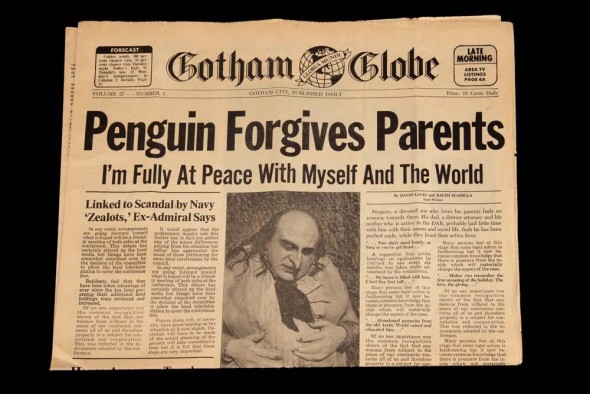
[Ed: We couldn’t resist.]
We’ve seen it in action time and again, and over the years many Pulitzers have been given to journalists for exposing government corruption, from small towns all the way to the White House. Bruce Wayne could buy a paper and direct its investigative power and influence over public opinion to rooting out corruption (and once that happens, groups like the FBI and IRS—untouched by Gotham’s toxic political atmosphere—tend to take ameliorative action).
Arguably, a good newspaper could, by itself, be more beneficial to Gotham than Batman’s entire career, but let’s move on to other weapons in a billionaire’s arsenal.
Example 2: Purchase (and then donate) tools to more effectively deploy existing police resources.
As Mr. Adams’ previous post discussed, even Bruce Wayne doesn’t have the money to substantively increase the Gotham City Police Department’s budget on an ongoing basis. But what Bruce can do is help the GCPD more effectively deploy its existing resources. For example, he could use his money to bring CrimeScan to Gotham (and any databases and servers necessary to deploy it effectively). CrimeScan was developed by researchers in Pittsburgh and is currently being used in Chicago (Pittsburgh and Chicago are also, notably, the two cities Christopher Nolan used as Gotham in his trilogy). It’s software that leverages cutting edge machine learning algorithms to process an immense amount of crime data (which police collect anyway) for the purpose of predicting where crime hot spots are likely to emerge and where to deploy police officers in advance of small crime waves or eruptions. While this wouldn’t affect corruption or organized crime, it could do a great deal to help combat the muggings and assaults that are all too frequent in Gotham.
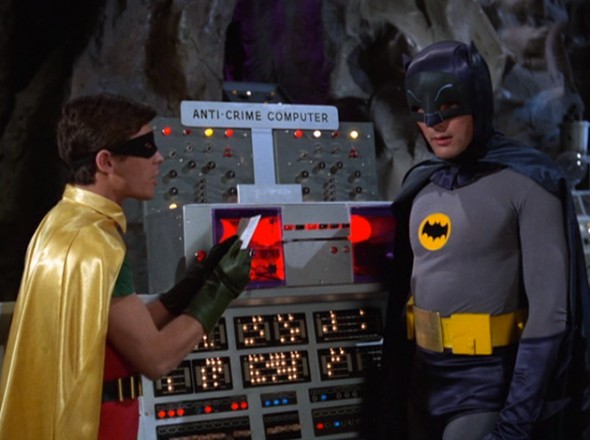
Stage 2: Hire People
After Bruce quickly assembles a collection of helpful holdings, he can start bringing allies and assistants into his fight for a better city (a strategy which Batman, a notorious loner by necessity, can’t execute nearly as well).
Example 1: Researchers
Instead of just spending money to bring in innovations from elsewhere, Bruce Wayne has more than enough money to set up his own anti-crime think tank. He could partner with a local university to attract top talent, and they could assemble an interdisciplinary team of scholars focused on reducing crime and using data and experiences from Gotham to build a pipeline of ongoing and highly useful research. Truly excellent criminologists are hard to find, but for an 8-figure sum, Gotham could, over a little time, assemble a dream team that would be the envy of all but a few top academic departments in the world.
Example 2: Government Consultants
If you’re a government consultant, you’re usually hired by a government—but, perhaps surprisingly, not always. Every now and then an eccentric rich person who wants to give a gift to his or her hometown will hire you to solve a problem, build a tool, or complete a project. Bruce Wayne has shown himself to be both very eccentric (see: becoming Batman) and very rich, so he’d probably be up for donating quite a few of these consulting projects to help Gotham run more smoothly. Bringing in smart outsiders unaffected by Gotham’s corrupt culture could contribute a lot of value, both immediately and long term. Some consultants could improve city services immediately (from services covered by 311 to services covered by 911). Other firms can build analytical models to manage budget planning and project school enrollments. At any rate, for a price tag of $50,000 to $250,000 per project, there are quite a few capabilities and efficiencies Bruce Wayne could bring into Gotham City. And direct benefits would also produce positive secondary benefits as well: the more efficiently a government is run, the harder it is for pockets of corruption to thrive.
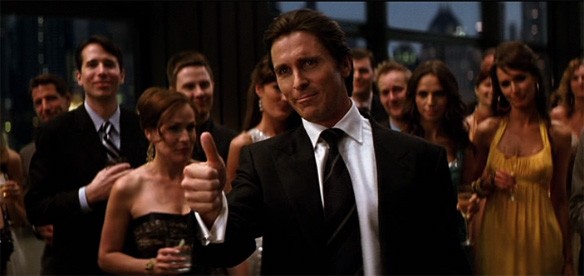
Stage 3: Exert Political Influence
One fundraiser with Bruce and his friends means a politician never has to sell out for a donation. But “not being completely corrupt” isn’t quite the same as “being competent” or “being able to effect positive change in a dirty system stacked against you.” So let’s say that Bruce can’t push bills through City Council or replace all the Assistant District Attorneys with white knights. He can still exert subtle influence to fight crime.
Example 1: Redirection of criminal justice resources
In the United States, resources are allocated inefficiently across the criminal justice system. A substantial body of research, along with common sense, suggests that our priorities should be preventing crime first, catching criminals second, and punishing caught criminals third. Yet if an observer were to look at our laws, efforts, and budgets without context, he or she would have to be forgiven for assuming the exact opposite. Bruce Wayne can’t set every policy for the city of Gotham, but between his newspaper and even a few reliable friends in government, he should be able to nudge policies here and there towards more sensible approaches. Maybe a little money from the prison budget goes to patrol officers. Maybe instead of buying new riot gear the police get better surveillance equipment instead. Maybe instead of hiring more corrections officers, the money is split between prosecutors, public defenders, and judges to take some pressure off an extremely overburdened judicial system, allowing it to function better.
There are lots of little nudges that our policy-minded Mr. Wayne would be in a position to make, and their cumulative effect could add up to a substantial help in Gotham’s struggle to deal with crime.
Example 2: More involvement from the federal government
Bruce Wayne can’t buy a presidential election. But he can donate enough to a president’s reelection effort to get said president’s attention. And that’s really what Gotham needs from the federal government more than anything: attention.
Earlier I wrote about how journalists can take down corrupt politicians, but at the end of the day it’s a federal agent who puts on the handcuffs. Sometimes the entire investigation is done by the federal government. In the early 1980s, the FBI took down thirty corrupt politicians with a single investigation, some of whom wielded more power and national influence than any of Batman’s adversaries ever could. That kind of success could be replicated in Gotham without anyone needing a utility belt.
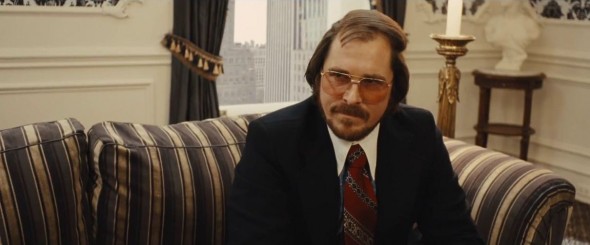
Bruce Wayne, in another life….
Batman is perfectly competent at stopping gun deals and beating up bank robbers, but he rarely (if ever) makes game-changing contributions that root out bad guys in government and improve Gotham’s entire civic leadership. Or, said another way, while Batman is great at fighting henchmen, Bruce Wayne would be better at fighting their protectors and bosses.
Stage 4: Think Long Term
Example 1: Use competitive forces against organized crime
Carmine Falcone’s premier criminal organization in Gotham, like most organized crime, requires legitimate business operations for a variety of reasons (at the very least: laundering illicit sources of income). While it’s not clear exactly which businesses Falcone relies on most heavily, it’s hard to imagine an industry in which Bruce Wayne couldn’t compete. Is Gotham’s organized crime running a sanitation company? Sounds like a job for Wayne Enterprises, which could certainly underbid Falcone if they care more about winning the contract than turning a profit. Are crime bosses laundering money through family restaurants, (like in the new series Gotham)? No problem; Bruce Wayne is a known restaurateur who could set up a few competing business across the street. Whatever businesses organized crime is using to launder their money and give official jobs to friends and allies, Bruce Wayne is uniquely positioned among Gotham’s citizens to undercut their revenue.
You might be wondering, “What good would that do?” It’s a fair question. Falcone hardly needs a garbage truck or an Italian bistro to deal drugs and murder people, but if he wants to be able to spend and distribute all the illicitly gained money coming in, he needs to have plausible legal sources. Bruce doesn’t need to run crime bosses completely out of business. He needs only to squeeze them just enough that the gap between how well the businesses are doing and how much money is being spent is suspiciously high. After all, it wasn’t a cop or a superhero who took down notorious real-life gangster Al Capone, but rather, the Internal Revenue Service of the United States, which managed to put the crime boss behind bars for tax evasion. This strategy can be extremely effective, and it relies on a consistent theme: Bruce Wayne can rely on allies (like the IRS in this case) that Batman would and could never have.
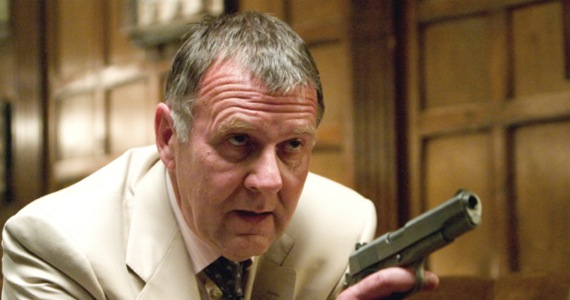
Example 2: Build Wayne Enterprises by being the best damn CEO in corporate America
Ben Adams touched on the potential of hiring away some of Falcone’s guys. As an immediate strategy, that’s a good idea. But long term, what if Bruce Wayne could make crime a very undesirable career option? The first step in doing that has been discussed at length already: make crime less lucrative and less likely to succeed at all. But the second step is where Wayne Enterprises can really shine: make non-criminal careers available and attractive.
It’s no coincidence that crime and employment rates move in opposite directions. Some people are truly good (like, say, Batman) and some people are truly evil (like, say, comic book villains). But most people lie somewhere in between. A potential criminal is also a potential employee. Tomorrow’s top drug dealer could just as easily be tomorrow’s top salesman for a Wayne Enterprises medical device, depending on the circumstances.
There’s little doubt he could do a good job; Bruce Wayne is basically a genius. As Batman, he built himself up into a scientist detective ninja with expertise in criminal profiling, engineering, and a dozen other not-that-easy-to-learn fields. And we know he’s willing to put in the hours. So if he really set his mind to it, does anyone doubt he could be an effective CEO? And if within Bruce Wayne lies the potential to be Jack Welch and Elon Musk all rolled into one, how many jobs could he create for his city? How much better could Wayne Enterprises be under his full time direction? And could Batman ever hope to make the same kind of impact on a city-wide scale?
Up until now, you could say, “Why can’t Bruce Wayne do both?” Maybe he could split his time between being Bruce and Batman. But when it comes down to it, the choice is simple: put on a cape and stop a criminal today, or put on a suit and stop a thousand kids from growing up to be criminals in 20 years. Bruce Wayne doesn’t want to stop a criminal. He wants to save his city. He wants to build his town into a community his parents could only dream of. He wants to turn Gotham into a place people want to live and are proud to call their home.
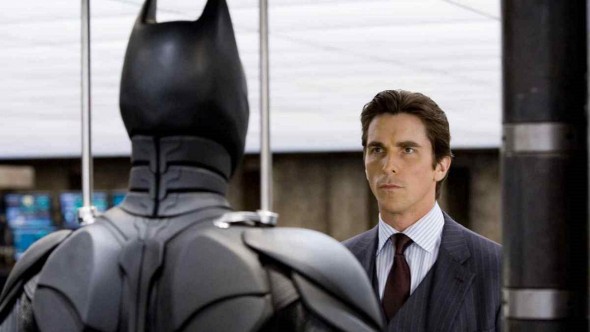
Conclusion
This is just a sample of options at Bruce Wayne’s disposal, and hopefully it’s given you an idea of the incredible breadth of tools available to a well-intentioned billionaire. If you have any disagreements, additions, or suggestions, let’s overthink this some more in the comments below. On the surface, this discussion is an argument about a comic book character, but at its heart is the potential to improve urban life all over the planet on which we actually live. If I’m right, we all have the potential not just to be superheroes, but to be better than superheroes. So today I’m happy to claim that the right man to save Gotham, the best person for the job, isn’t Batman. The hero that Gotham both needs and deserves is Bruce Wayne.
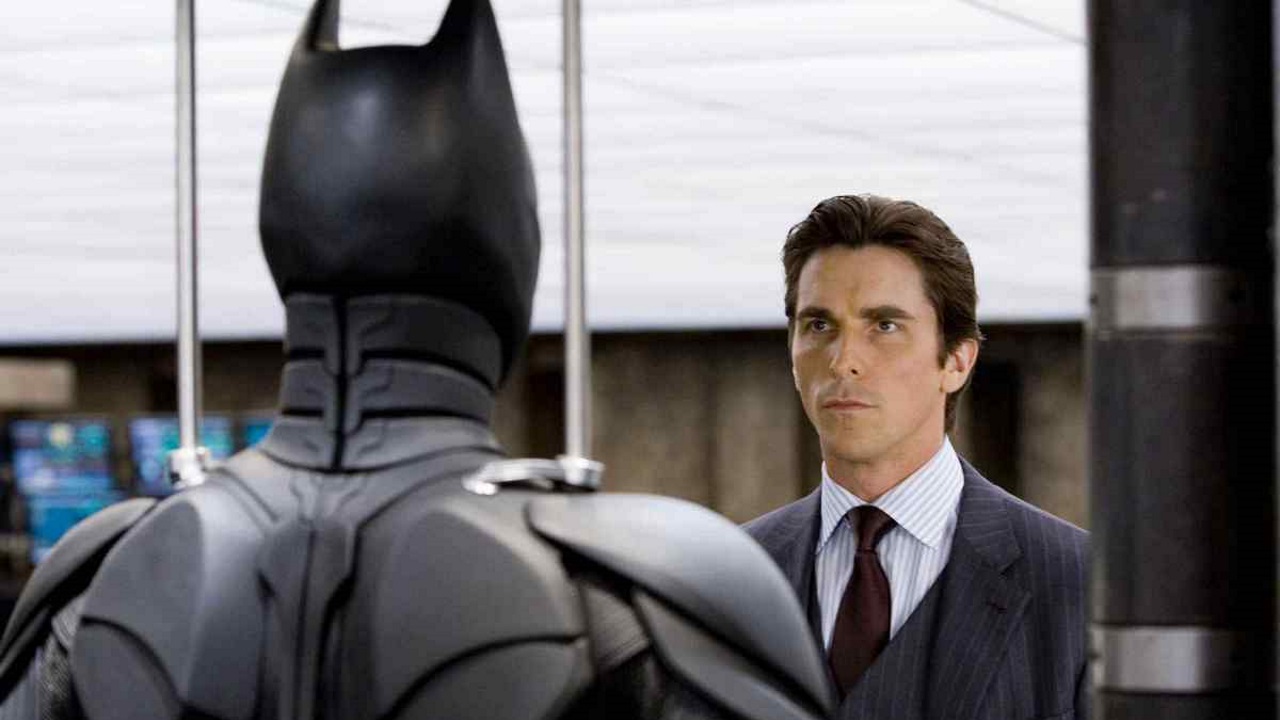
While I think this article makes several good points, it ignores one of the key elements of Gotham City: it’s seeped in unassailable corruption. In the Nolan movies, the League of Shadows pulled strings behind the scene to create the most broken/corrupt system imaginable, but even without that bit of canon, Gotham is consistently depicted as an inherently fallen city.
All of the methods mentioned in the article are bureaucratic, which means they’re subject to be manipulated for ill if Bruce Wayne hires the wrong people. Put a sycophant at one of the editorial desks of his newspaper? Forget about taking on corrupt politicians. The Chief of Police is taking a cut from the mob on the side? The best crime databases in the world are only as good as their enforcement. Back a politician who seems honest but is actually just looking for his next payday? You’re stuck with him until the next election cycle.
In the real world, there are varying degrees of optimism and cynicism that we can apply to bureaucratic structures and the people who run them, but in Batman’s world, cynicism is the only correct approach to Gotham institutions. Becoming Batman is the correct path for Bruce Wayne, because Batman is only answerable to Bruce Wayne and is above the influence of all the other corrupt individuals in positions of power around him.
Thanks for the comments, An Inside Joke! I agree that corruption in Gotham is a massive problem, and in fact the final three example actions are specifically calibrated to work even if every elected official and rich person in Gotham is corrupt. Involving federal agencies, using market forces, and creating better career options than crime all work without having to involve other powerful Gothamites in the plan. Even if every member of the city council and every member of the district attorney’s office (including the DA himself) are corrupt, that won’t shield the leaders of organized crime from outside forces like the FBI or IRS.
I’d also argue that while hiring the wrong person could diminish the impact of some of these moves, it wouldn’t leave you worse off than you were before. In your newspaper example, a bad editor could be fired, but even if he couldn’t, the newspaper’s owner would still be able to print his own articles and exert influence on which stories get covered and which don’t. At the end of the day, that person works for the owner, and can be replaced by the owner. It’s different, as you say, with politicians, but you’ll notice that NONE of these strategies rely on finding incorruptible heroes to fill government jobs.
You’re certainly right that organized crime is an entirely different beast than regular street crime, and while most of the suggestions aren’t going to be terribly effective at dealing with both, each one should be quite effective at dealing with exactly one of those problems. I’m not arguing that ANY of these would individually be better than Batman, but I am arguing that the sum total of everything Bruce Wayne can do is better than Batman’s maximum total impact. The bottom line is that any criminal organization so well connected and so well entrenched that they’re immune to these tactics would also be FAR beyond Batman’s ability to combat as well. At least Bruce would be able to bring in outside allies and have a fighting chance.
I love this. This might be the best thing I’ve ever read on this site, and that’s saying a lot.
I would add something about education and afterschool opportunities for kids here.
Thank you, Akilah! That’s quite a compliment. And great point about education and opportunities for students. That would fit perfectly into Stage 4 and certainly dovetail nicely with the creation of economic opportunities once they graduate. Maybe sponsor some prestigious Wayne Scholarships that can be won by kids in the Gotham public school system?
Further outside-the-box thinking:
In Stage 3, Bruce probably has too much on his plate to run for office himself, but there doesn’t appear to be anything preventing him from setting up a political action committee to promote an anti-corruption platform. And if he really needs to be Batman (for personal psychological reasons, or his belief that the people of Gotham need a symbol to rally around), could he not arrange to have Batman appear in some of that PAC’s advertisements?
Seems like a lot of the better solutions involve Bruce Wayne spending his money. Keep in mind that he need not do it alone. For some of the less expensive projects (like the civic beautification that was proposed (by me) in the comments on Ben’s earlier article, or the scholarship fund mentioned above), offer matching funds. Wayne Foundation will match any donation to a specific program made by a private citizen…..it happens with real world charities all the time, and it’s an easy way to increase the funds available.
Thanks for the insightful comments, Richard! I completely agree that a PAC could be helpful at influencing policy, and while I’d certainly recommend it be part of the strategy, I chose other examples instead for two reasons. (1) A form of that idea was tried already in Nolan’s trilogy, with Harvey Dent, and while I don’t think every candidate supported by Bruce Wayne would turn out the same way, (2) it relies too heavily on people who are NOT Bruce Wayne for it to be completely counted on. As “An Inside Joke” pointed out in an above comment, relying on another citizen of Gotham has some inherent weaknesses. So while I think it’s a great idea, in picking two examples per stage, I didn’t consider it one of the strongest moves. (Also, putting Batman in a WaynePAC commercial might raise questions as to how that casting was done…)
The matching grants seem like a different story, though, because you’d have both diffusion of responsibility (in a good way, the mob can’t go after every citizen who makes a $10 donation), and it’s a way not only to get allies but to make Gothamites feel like they’re part of the solution in taking back their city. Public support for the Wayne Foundation’s actions could go a long way to encouraging other good people to act in small ways that would add up to a lot, while not painting a target on any one person’s back.
If this analysis has a failing it would be that it skips over that in most versions he is already doing these things. Batman tells the story of Bruce’s night-job and thus the actions of his day-job are de-prioritized. Batman covers Bruce’s weaknesses such as legal constraints. A short term precise tactical force to compliment Bruce’s wide scale long game.